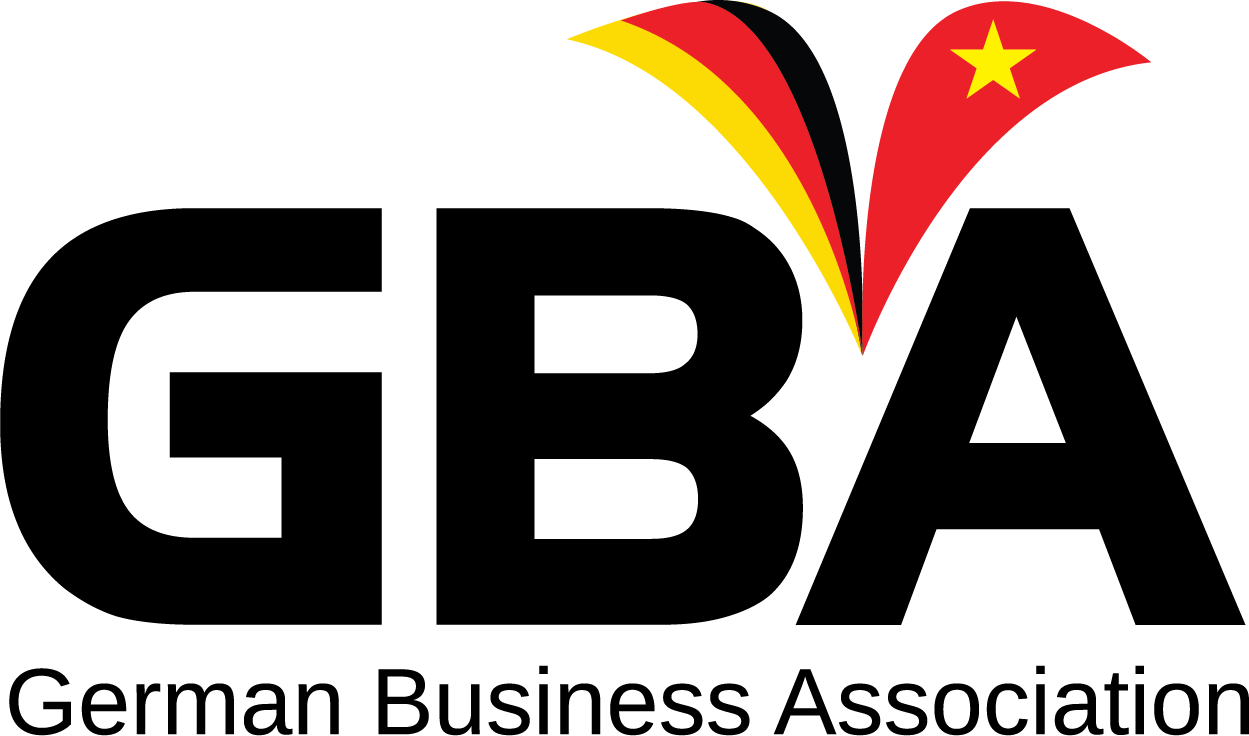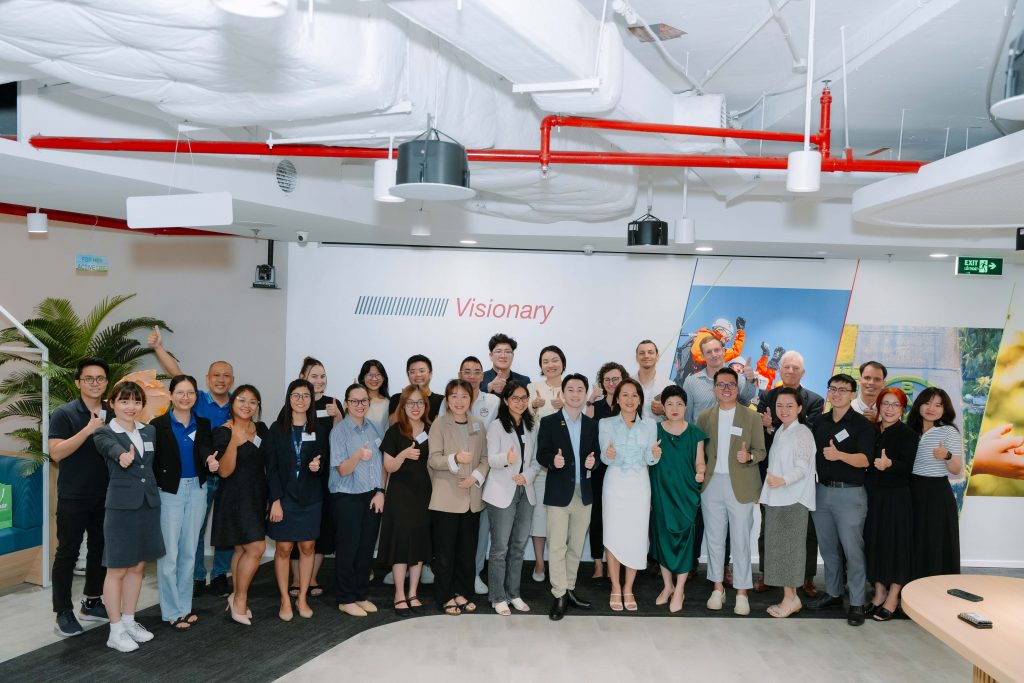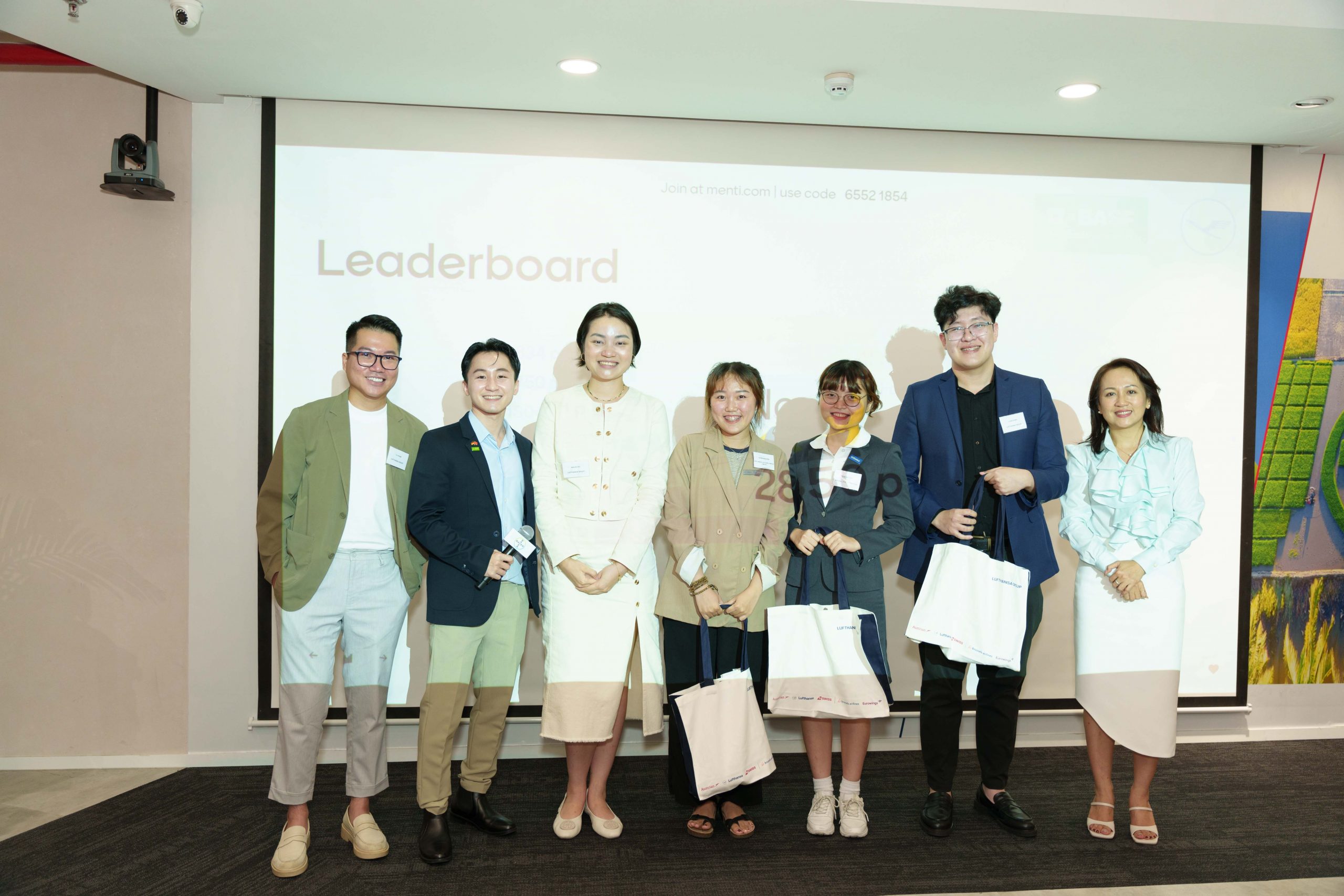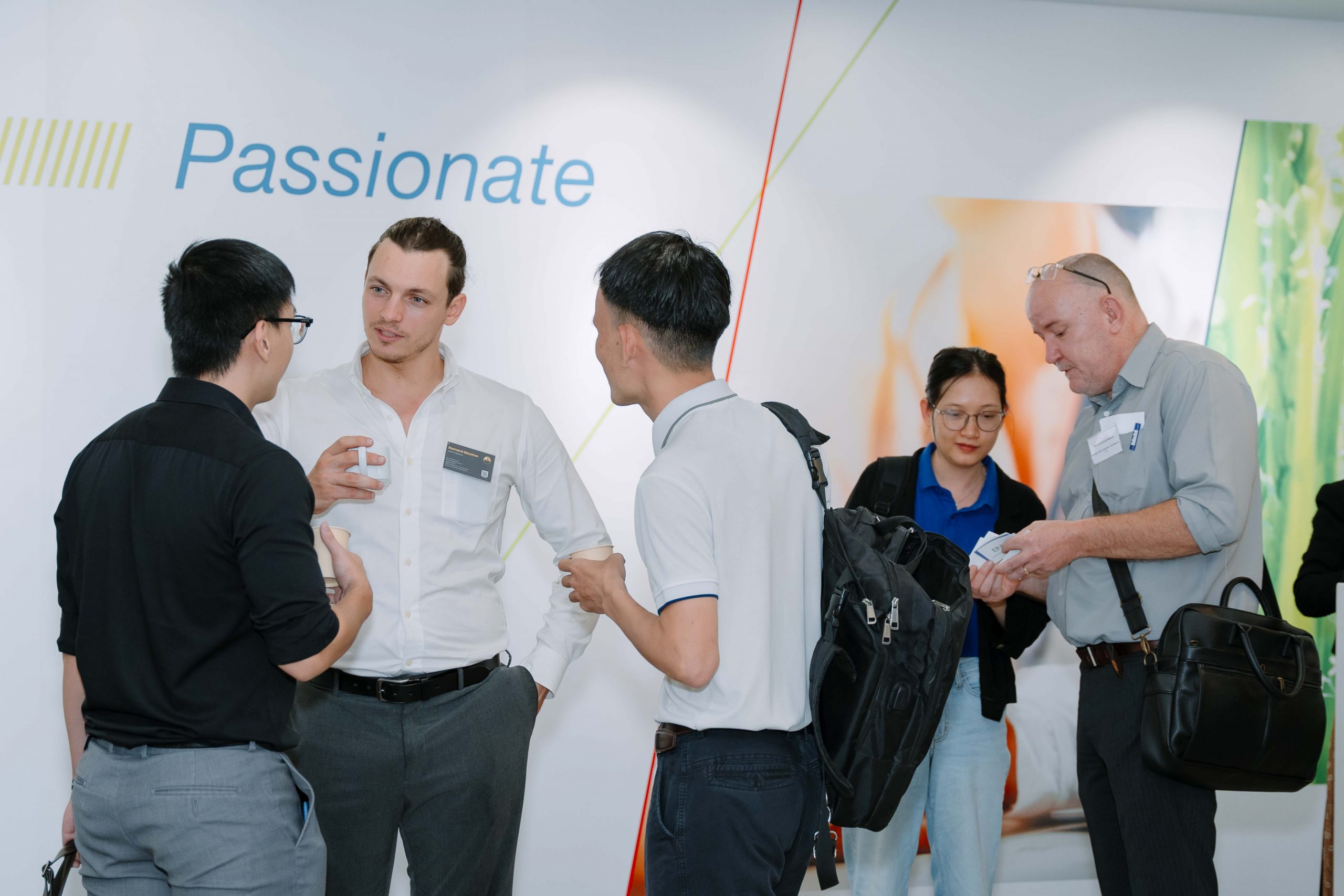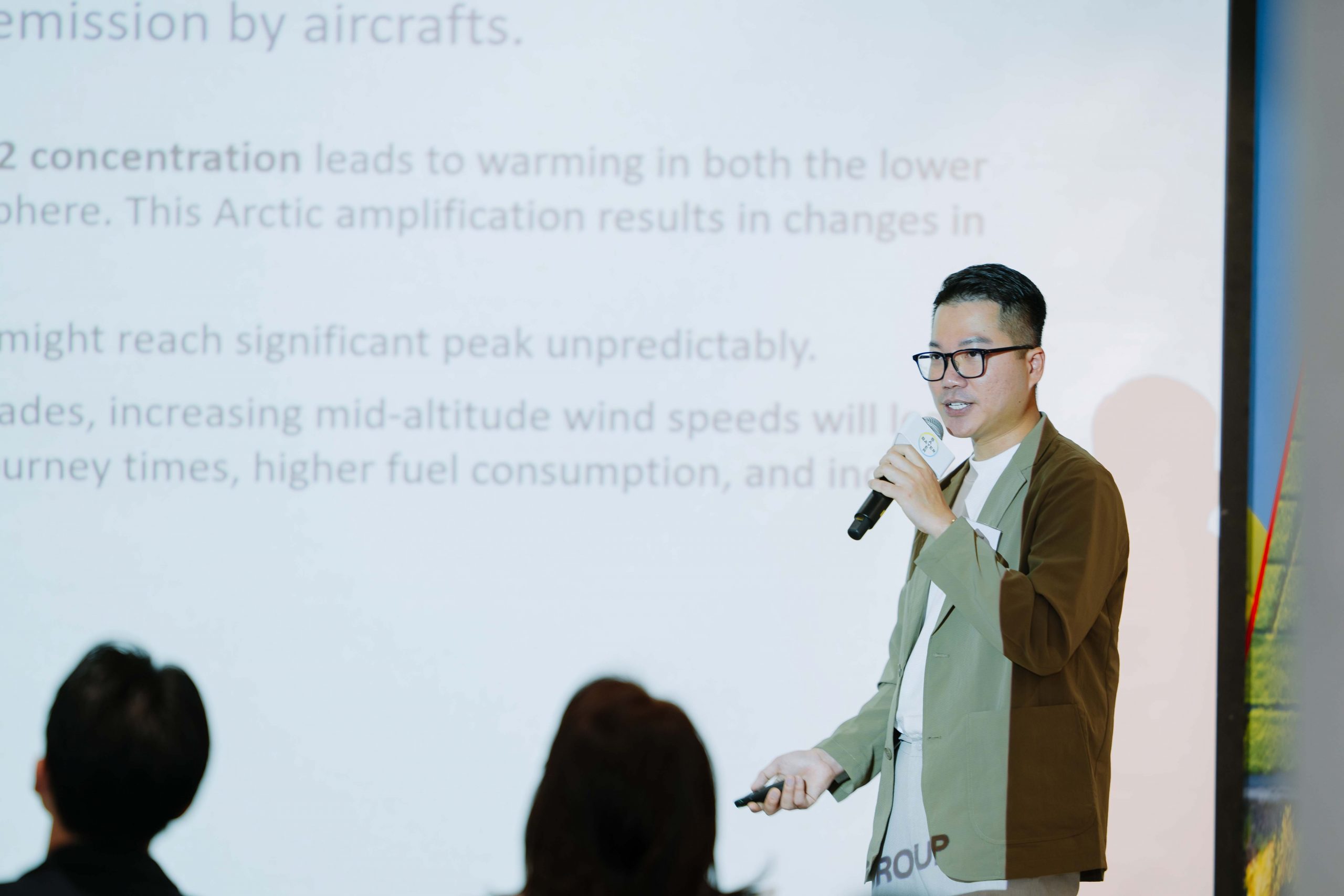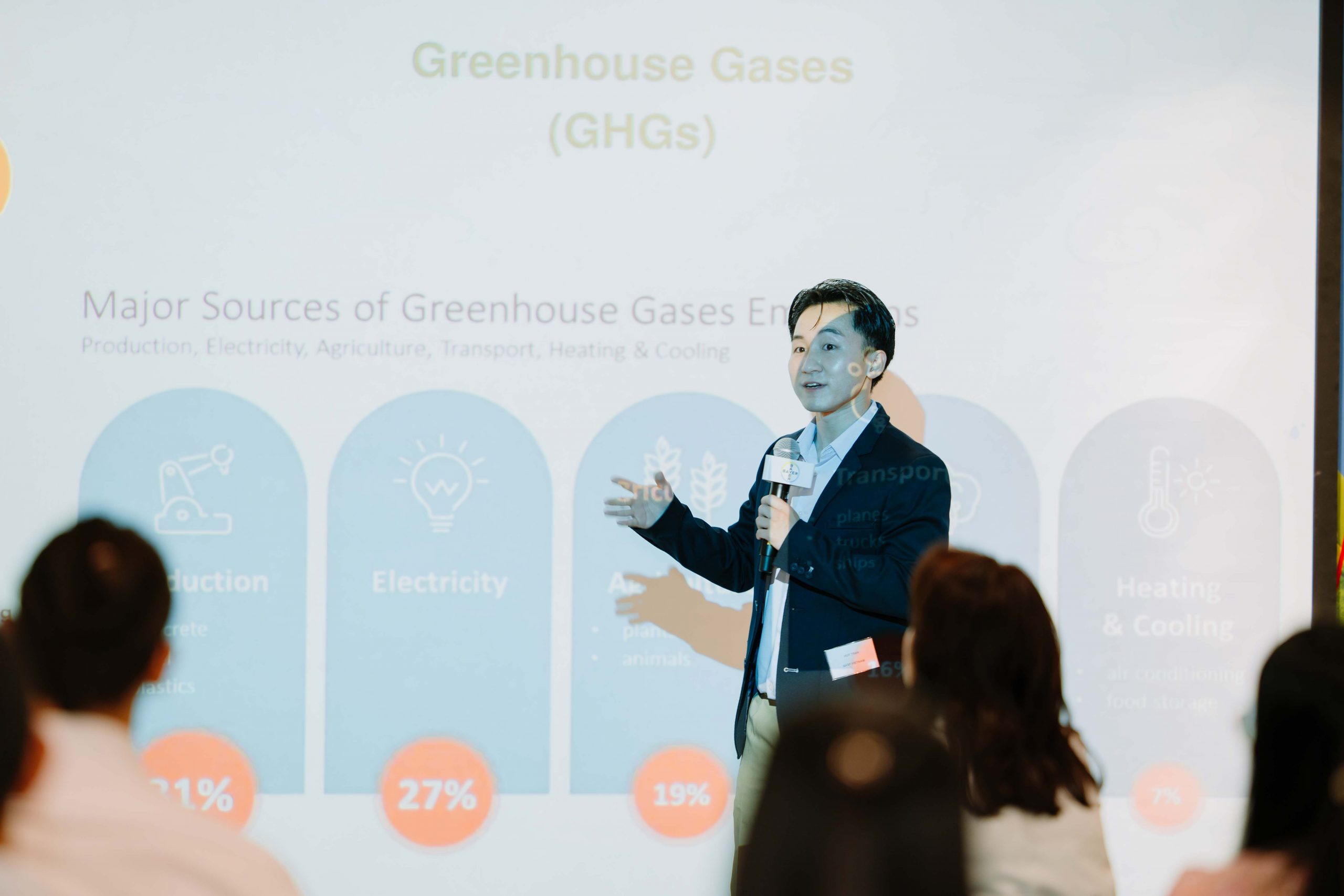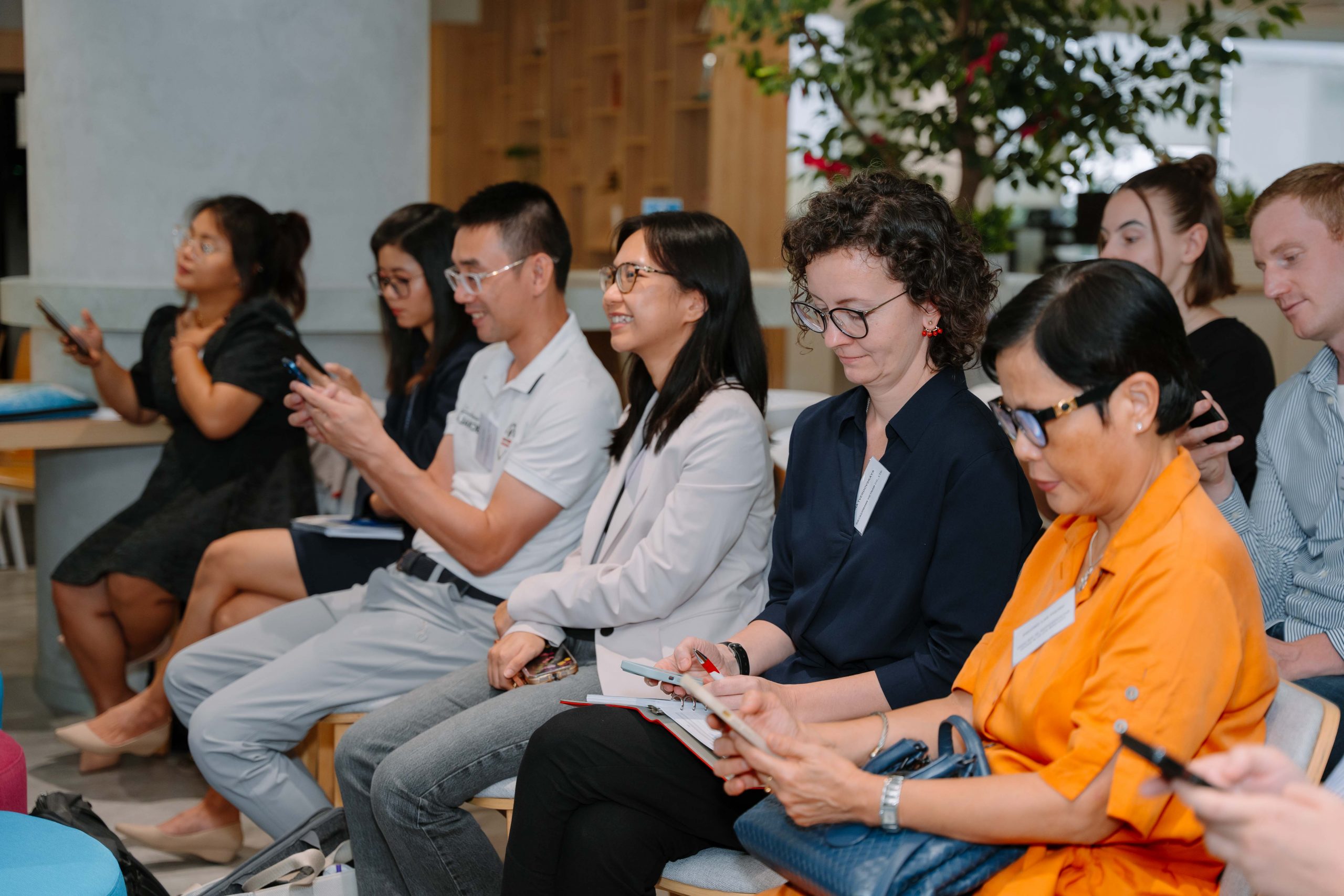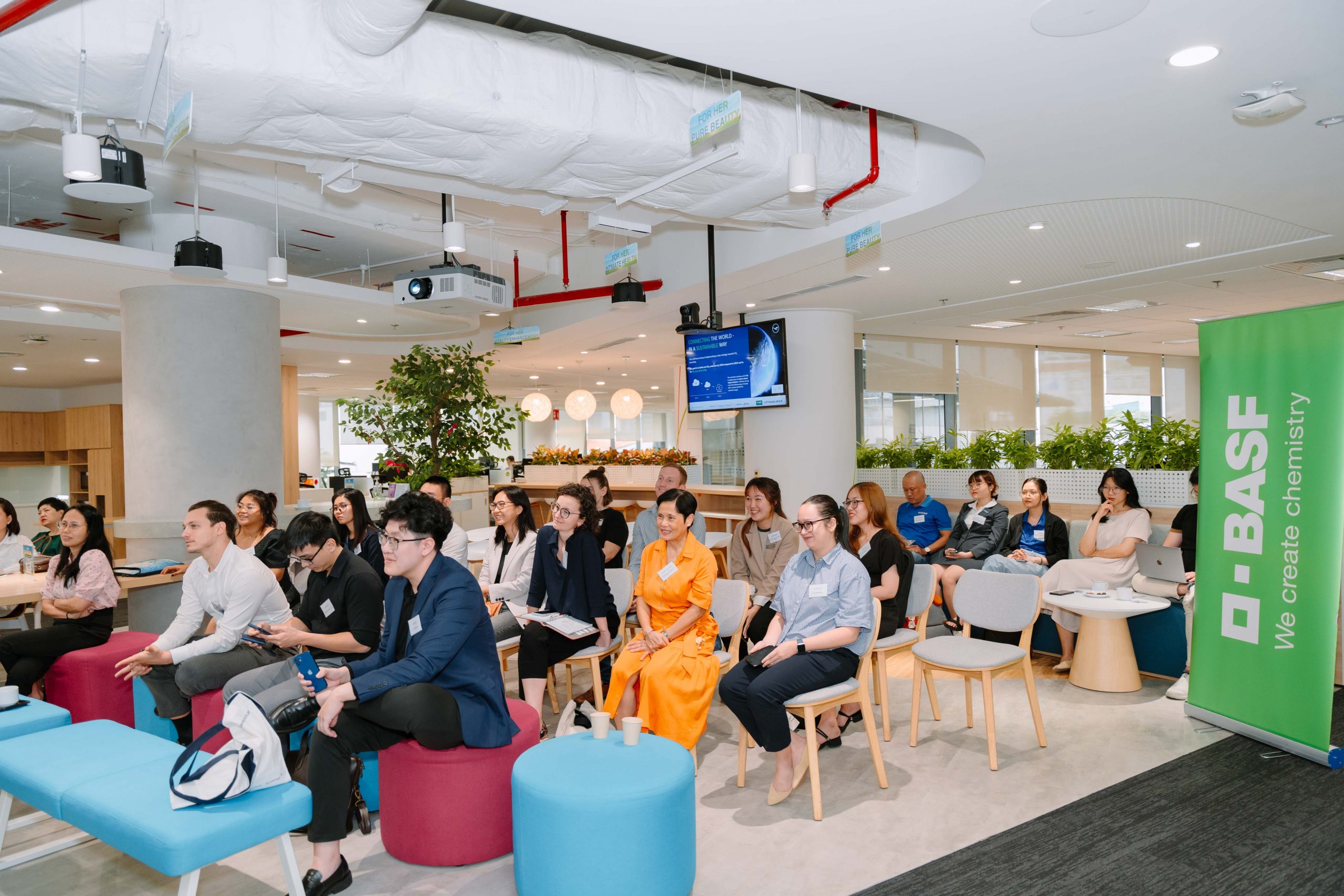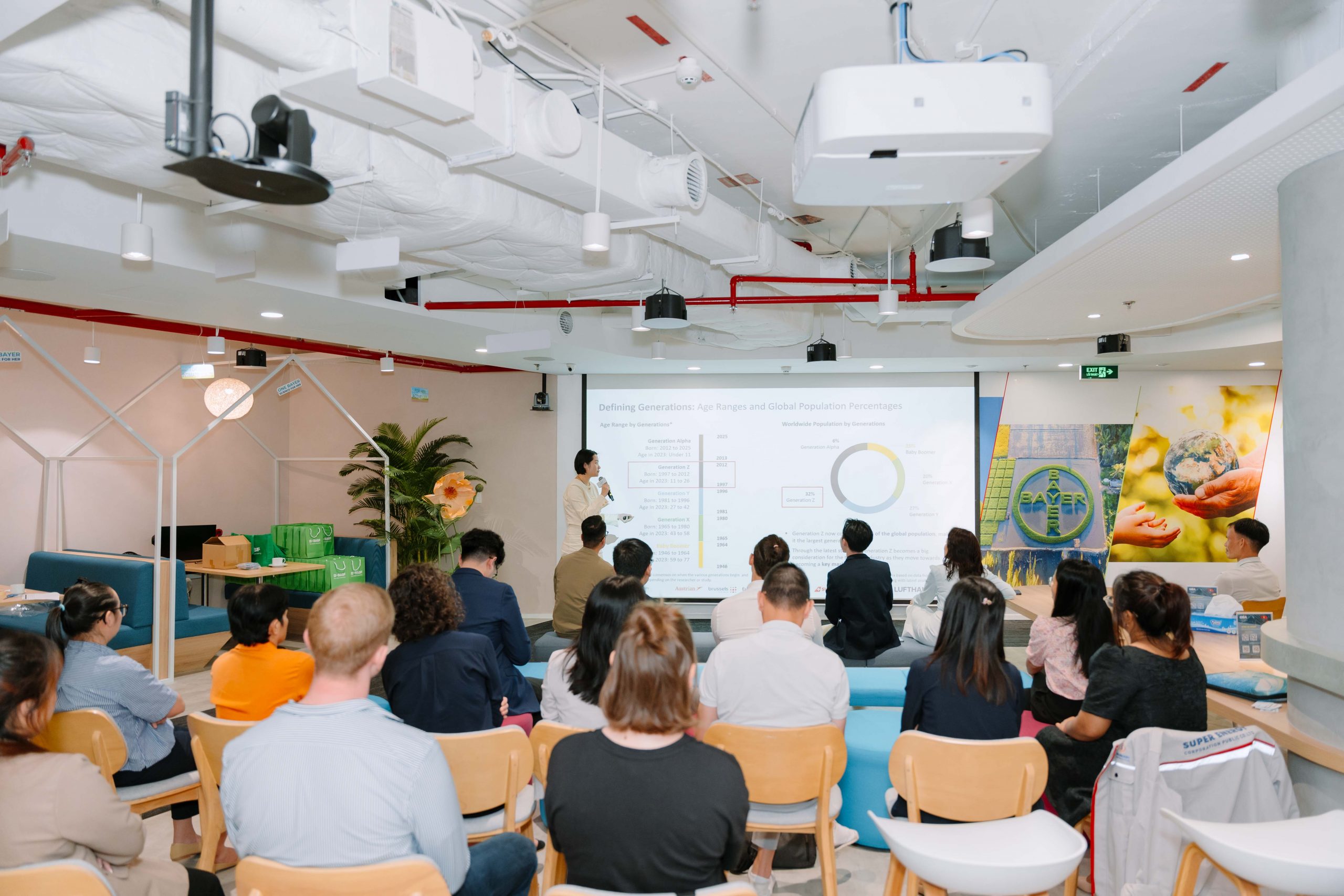HCMC, July 5 – The German Business Association (GBA) organized a workshop titled “Net Zero Pathways: Lufthansa & BASF’s Strategies for Green Technology Implementation” at Bayer Vietnam’s office. The event drew 30 attendees from various industries, emphasizing the significance of environmental responsibility. Presentations were given by Ms. Duyen Do, Ms. Anlee Do, Mr. Huy Tran, and Mr. Tu Pham, showcasing sustainable practices and strategies from Lufthansa Group and BASF.
Key Points from the Presentations:
1. Understanding the Impact of Climate Change and Gen Z’s Changing Behavior: Mindset Shifts
☆ Climate Change Effects: Human activities, such as CO2 emissions, contribute to global warming, glacial melting, sea level rise, and natural disasters.
☆ Airline Industry Challenges: Extreme weather impacts revenue, infrastructure, and passenger well-being. Wind changes increase fuel consumption and CO2 emissions.
☆ Clear-Air Turbulence: Climate change leads to more turbulence incidents, affecting flight safety and increasing operational costs.
☆ En-route Weather: Extreme weather stresses airport infrastructure and aircraft, causing delays and operational issues.
☆ Generation Z: Known as the Sustainability Generation, Gen Z values environmental responsibility, global awareness, and authenticity. They are willing to pay more for sustainable travel options.
2. Exploring Lufthansa Group’s and BASF’s Strategies and Goals
☆ Lufthansa Group: Aims to halve CO2 emissions by 2030 and achieve CO2 neutrality by 2050. Strategies include using Sustainable Aviation Fuel (SAF) and AeroSHARK technology.
☆ BASF: Commit a 25% reduction in Scope 1 and 2 CO2 ; 15% reduction in Scope 3.1 emissions by 2030 and net zero by 2050. Key levers supporting the commitments include: Renewable Energy, Carbon Abatement, Operational Excellence Measures.
3. Climate Protection Initiatives
☆ Sustainable Aviation Fuel (SAF): Produced from renewable waste, SAF reduces CO2 emissions by at least 80% compared to fossil fuels.
☆ Next Gen SAF: Includes Power-to-Liquid (PtL) and Sun-to-Liquid (StL) processes, producing SAF from renewable electricity and solar heat.
☆ AeroSHARK: A bionic adhesive film that optimizes airflow on aircraft surfaces, reducing fuel consumption.
☆ Certified Digital Solution: To make BASF’s product specific greenhouse gas emissions more transparent and thereby determined the carbon footprints of around 45,000 sales products.
☆ Renewable Raw Material and Mass Balance Approach methodology: Using alternative raw materials, BASF can manufacture the same products in a more sustainable way, enable the replacement of fossil feedstock and contribute to a circular economy, push for the low Product Carbon Footprint / Net-Zero products.
☆ Climate Protection Projects: Lufthansa and BASF support reforestation and renewable energy projects to offset CO2 emissions.
4. Community Engagement
☆ Lufthansa’s Help Alliance: Supports social and humanitarian projects worldwide, including World Cleanup Day and visits to SOS Children’s Village and Little Rose Warm Shelter in Vietnam.
☆ BASF’s Local Initiatives: Key social engagement programs include BASF Kids’ Lab/Virtual Lab, School Renovation and Playground Building projects.
The workshop highlighted the critical role of sustainability in business strategies and the importance of innovation and collaborative efforts to combat climate change. The GBA extends heartfelt gratitude to all keynote speakers, panelists, and attendees for their invaluable contributions and for making the workshop a resounding success.
Click here>>> for the full photo album.
